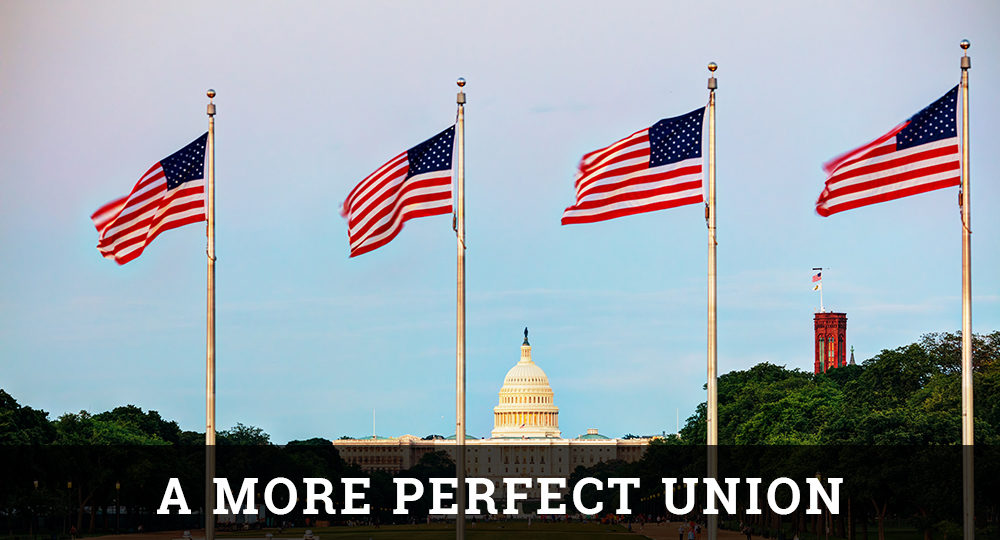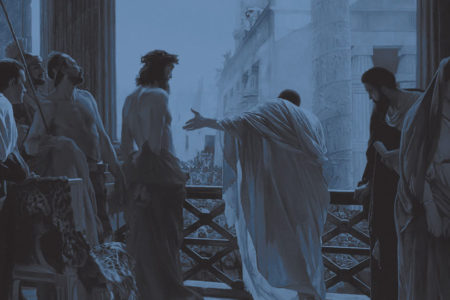The Late Justice Scalia: Judgment Affirmed
Author Carl Sandburg popularized an old lumberman’s saying when he wrote, regarding the death of President Abraham Lincoln, “A tree is best measured when it is down.” The news that U.S. Supreme Court Justice Antonin Scalia passed into eternity was barely hours old when the Twittersphere and Internet burst with measurements of his legacy.
A few days after Justice Scalia’s death on February 13 at age 79, I was debating a well-known leader on the separation of church and state. I praised Scalia, but my opponent condemned him, claiming he had caused great social harm. Such was the controversial impact of the longest-serving member of the current Supreme Court.
Part of Justice Scalia’s influence may have come from the sheer force of his personality; his brilliantly incisive, often biting dissents; and his unrelenting and even humorous exchanges during oral argument with lawyers whom he thought had missed the mark. But he was controversial for more important reasons that reveal a danger in the way liberal activists view both the role of the U.S. Constitution and the limitless power of the government.
First and foremost, Scalia was a “textualist,” meaning he believed the beginning point for a court’s work should always be the actual words of the law—in context and using the plain, commonly understood meaning of the words themselves.
When the Supreme Court, for the second time, upheld Obamacare, it did so by mangling the meaning of the law’s key phrase: “an [insurance] Exchange established by the State.” Simply put, if the phrase actually means what the words say, namely, that a “state” insurance exchange is not an insurance exchange created by the federal government, Obamacare would be doomed.
Faced with that prospect, a majority of justices willingly ignored the rules of the English language to hold that the word state really meant “federal government,” a notion that would have shaken the Founding Fathers to the core. In his dissent, Scalia railed against that betrayal of the judging profession.
Words in laws actually matter, and no one argued more passionately for that logic than Antonin Scalia. The issue is not merely about linguistics; it is about the power of judges to ignore what words truly mean so that they may abandon their constitutional role and act as “superlegislators,” twisting the law to create a result they deem desirable. When the basic rules of language no longer apply, public servants suddenly acquire the power to become unaccountable rulers.
Justice Scalia was also an “originalist.” He believed the only legitimate way to interpret the Constitution is to adopt, as much as practical, the original understanding given by the Founding Fathers. The liberal wing of the Supreme Court has abandoned this approach, leading to a stunning destruction of the idea of freedom itself. When the court in 2015 voted 5 to 4 in Obergefell v. Hodges that states are not free to define marriage as one man with one woman but must allow same-sex marriage, Scalia dissented:
This practice of constitutional revision by an unelected committee of nine, always accompanied (as it is today) by extravagant praise of liberty, robs the People of the most important liberty they asserted in the Declaration of Independence and won in the Revolution of 1776: the freedom to govern themselves.
When federal judges, selected for life, use standardless constitutional activism to yank basic freedoms out of the hands of the American citizenry in order to be politically correct so that they may fulfill a liberal, social agenda, the end of the rule of law and the beginning of rule by black-robed oppressors cannot be far behind.
Antonin Scalia foresaw this eventuality and passionately warned us. It remains to be seen, both in the coming national election and the appointment of his successor, whether we are closer than we ever imagined to the waning of day and the coming of night in America.








